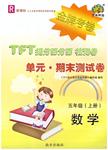题目内容
In England, afternoon tea, taken between four and five, is the most informal (非正式)meal of the day. If you are a friend of the family, you may drop in for tea without an invitation or telling that you are coming. Very often it is not served at a table. The members of the family and visitors take tea in the sitting-room. Each person has a cup and saucer(托盘), a spoon(汤匙)and a small plate for bread-and-butter and cake. By the way, do not help yourself to cake first; bread-and-butter first, then cake if there is any. Another piece of advice: Do not put more than one piece of bread or cake on your plate at the same time.
Choose the best answer according to the passage:
1. Afternoon tea is usually served with ______.
A. tea only B. tea and some food
C. tea, dessert and meat D. cake and bread
2. If you want to have afternoon tea in a friend’s home, _______.
A. it is necessary for you to send a message
B. you should wait for his invitation
C. it is impolite for you to go there without taking anything with you
D. it is unnecessary for you to call him or send a message
3. In the passage, “drop in “means “_________”.
A. pay an informal visit B. fall down
C. drink at a friend’s home D. break
4. It’s impolite for you ______.
A. help yourself to cake first
B. share a cup with your friend
C. put more than one piece of bread or cake on your plate once
D. all of the above
5. Which of the following is NOT true?
A. Afternoon tea is often taken in the sitting-room.
B. The ![]() members of the family often share a cup and saucer, a spoon, etc.
members of the family often share a cup and saucer, a spoon, etc.
C. Afternoon tea is usually taken between lunch and supper.
D. Help yourself to bread-and-butter before cake if there is any.
1. B 2. D 3. A 4. D 5. B

 提分百分百检测卷单元期末测试卷系列答案
提分百分百检测卷单元期末测试卷系列答案Willam Shakespeare was a writer of plays and poems. Some of his most famous plays are Hamlet, Romeo and Juliet, Macbeth .He wrote thirty-seven plays in all. They are still popular today.
He was born in 1564 in England. At school he liked watching plays. He decided to be an actor when he finished school at the age of fourteen. In 1582, he married a farmer’s daughter. She was eight years older than he was. Their first child was a daughter .Later they had twins. In1585, Shakespeare left his hometown, Stratford-upon-Avon. His wife and children stayed behind .No one knows why he left or what he did between 1585 and 1592.
At twenty-eight he moved to London and joined a theatre company which opened the Globe Theatre in 1599. He became an actor, and he also wrote plays. He usually acted in his own plays .He earned almost no money from his writing. But he made a lot of money from acting. With the money he bought a large house in his hometown.
At the age of forty-nine, Shakespeare retired (退休) and went to live in Stratford-upon-Avon. He died at the age of fifty-two. He left his money to his family. He left his genius to the world. You still see his plays in English and in many other languages. He is one of the most famous writers in the world..
【小题1】Shakespeare wrote many famous plays except(除了) __________.
| A.Hamlet | B.Macbeth |
| C.Romeo and Juliet | D.Man and Superman |
| A.1578 | B.1582 | C.1599 | D.1616 |
| A.with his wife | B.with his daughter |
| C.with his wife and children | D.alone |
| A.writing. | B.plays | C.acting | D.retirement |
| A.Shakespeare had two children. |
| B.Shakespeare wrote both plays and poems. |
| C.Shakespeare left his money to the Globe Theatre. |
| D.Shakespeare wrote plays in English and some other languages. |
